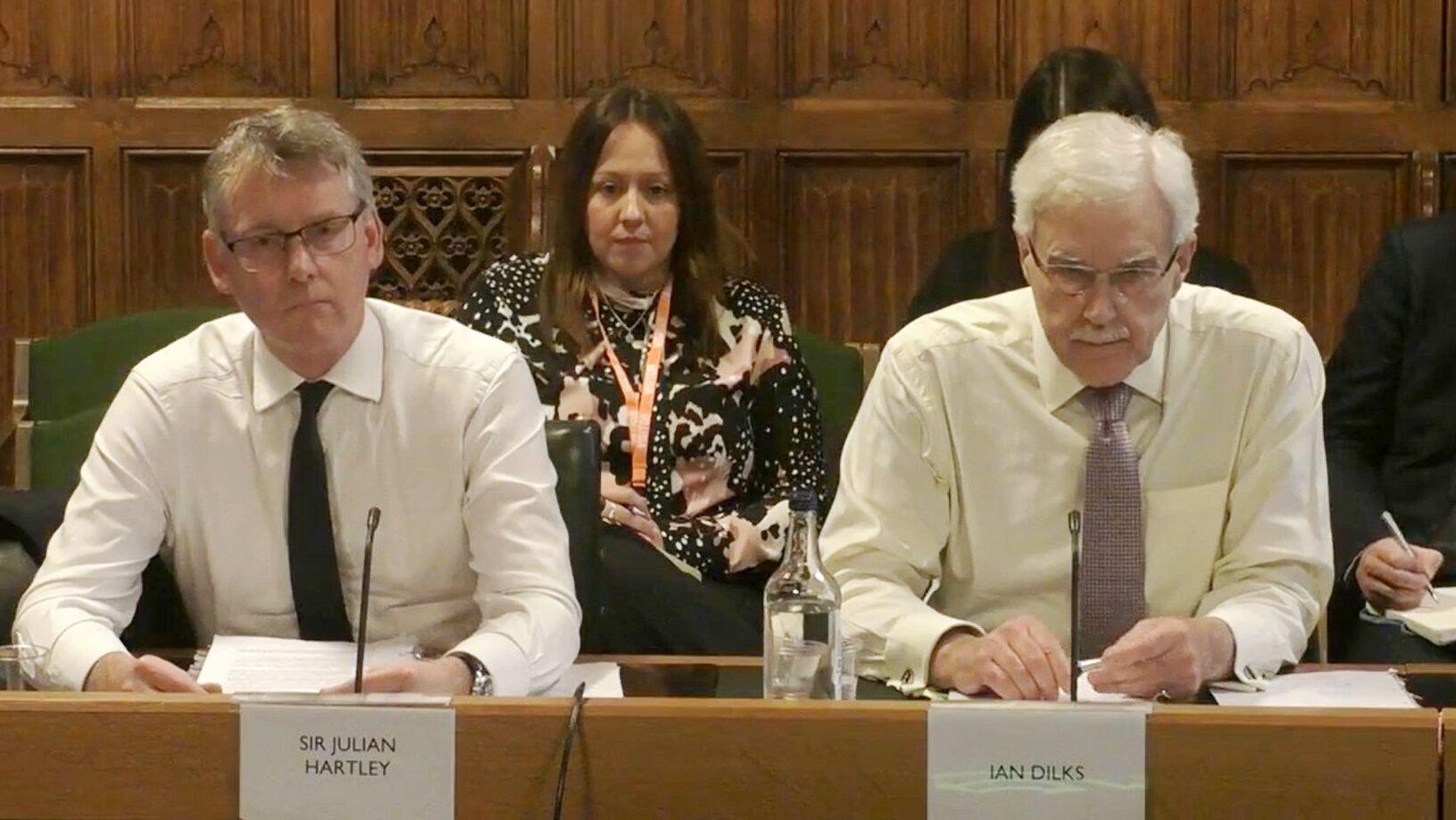The ICS transition: your questions answered
MiP is fully committed to supporting members through the ICS transition in England. Here are our best answers to some of the key questions you may have about the transition and how it will affect your job. We will keep this page updated as the transition progresses.

- Employers & contractual arrangements
- The Employment Commitment
- Fairness & equality
- Minimum disruption
- Timetable & process
- The future ICS
- Miscellaneous
Employers and contractual arrangements
1. Will this have an impact on the jobs of members working in provider trusts?
The full impact of the legislation is not yet known, as it could change while going through the legislative process and subsequent interpretation. Where a job involves doing work which will transfer to the statutory NHS Integrated Care Board (ICB), there is likely to be an impact.
2. I am seconded from a CCG to do work in the ICS. How will this impact me?
Provided the work you are doing for the ICS is still required there should be no change in your current arrangement, except that your substantive employer will change on transfer to the statutory ICB. All the contractual terms of your secondment should remain unchanged. If there are any changes at all these should be set out in a ‘measures letter’ prior to the transfer and you will be informed of them. These are likely to include technical matters such as a change in payroll provider, pay date etc. According to the guidance, NHS England’s employment commitment applies “even when not legally required” (see page 6).
3. I am seconded from a trust to do work in the ICS. How will this impact me?
Provided the work you are doing for the ICS is still required there should be no change in your current arrangement. All the contractual terms of your secondment should remain unchanged except that the employer you are seconded to will change. NHS England’s employment commitment applies “even when not legally required” (see page 6).
4. Functions will be transferred from NHS England. Will NHSE staff who deliver those functions be affected?
Not necessarily. This has not been determined yet. It is possible that some or all affected NHSE staff will continue to be embedded or seconded and retain their substantive employer, and the posts that will be affected have yet to be determined. Any changes to the draft legislation as it progresses through parliament could change which posts are affected.
5. What about transfers from CCGs to trusts in place-based partnerships?
Any proposals of this sort result from decisions being made at local (STP, ICS or ICP) level. The guidance document FAQs on NHS England and NHS Improvement’s legislative recommendations on ICSs encourages employers to minimise uncertainty and limit employment changes as much as possible. If this level of disruption is being proposed locally you should take it up with your local MiP Rep or contact us so MiP can raise this with your employer.
6. What will be the impact on CSUs and CSU staff?
Contractual relationships between NHS bodies should not be affected, so working arrangements under a contract for services should continue as they are, but with the new Integrated Care Boards (ICBs) rather than CCGs. This is clarified on page 7 of the Guidance on the Employment Commitment, which also makes clear that the employment commitment applies “even when not legally required” (page 6). The situation in North East London is slightly different – if you are affected by this, please contact us.
7. Have the people who have already been recruited to ICS posts got an unfair advantage over CCG staff?
According to the Guidance on the Employment Commitment, it is envisaged that the transfer of staff below board level in CCGs will be a simple ‘lift and shift’ from one organisation to another (page 4). The employment commitment has no end date, so any subsequent reorganisation undertaken by the new statutory Integrated Care Board (ICB) would be expected to follow their own organisational change policies on managing organisational change (page 7) and establish a robust economic, technical or organisational reason for changing colleagues’ contractual terms and conditions of employment in the future. This would normally involve full consultation with the staff side trade unions. These issues should be dealt with through that consultation process. Guidance on the process for appointments to ICB board-level posts is expected shortly.
8. What will happen about jobs in different CCGs being paid at different grades?
Guidance on the Employment Commitment envisages that the transfer of staff below board level in CCGs will be a simple ‘lift and shift’ from one organisation to another (page 4). Any anomalies in relation to pay and job descriptions will then be for the new statutory Integrated Care Board (ICB) to address in accordance with the law and through consultation with their local trade union representatives.
9. How will current operations transfer into the new world?
The Guidance on the Employment Commitment states that it is envisaged that the transfer of staff below board level in CCGs will be a simple ‘lift and shift’ from one organisation to another (p4). Any reorganisation of work after that point will be for the new Integrated Care Board (ICB) to undertake in accordance with agreed organisational change procedures, after full consultation with the staff side trade unions.
10. My service is hosted (or will be hosted) by a trust. How will this affect me?
The full impact of the legislation is not yet known, as the bill could change whilst going through the legislative process and subsequent interpretation. Where a job involves doing work which will transfer to the new Integrated Care Board (ICB) there is likely to be an impact. The employment commitment applies “even when not legally required”. (See page 6 of the Guidance on the Employment Commitment.)
The Employment Commitment
NHS England has published guidance on the Employment Committment, developed jointly with MiP and other trade unions through the Social Partnership Forum (SPF). To find out more, read the FAQs page on the SPF website.
11. Which posts are counted as ‘board-level’ posts?
The Guidance on the Employment Commitment (page 5) defines ‘board-level’ as those colleagues who are likely to be affected by change following the confirmation of a statutory ICS executive/board-level structure. It is anticipated that this will include CCG Accountable Officers, ICS Chief Executive Officers, and director or executive-level roles that report to the chief executive officer of an ICS or an accountable officer of a CCG, as well other posts on the CCG governing body and some other senior posts within the wider system.
12. If my ‘board-level’ post ceases to exist, what would be suitable alternative employment for me? Will I be pressured to take an alternative job which I think is not suitable?
In law, suitable alternative employment is determined in relation to a number of factors, including location, hours of work, remuneration, job duties and status. Any member of staff who is put ‘at risk’ of redundancy would be expected to apply for suitable alternative employment in the wider NHS system, and to justify their reasons for not applying for jobs which they deem not to be suitable prior to being dismissed on grounds of redundancy and receiving a redundancy payment. A failure to accept suitable alternative employment could result in forfeiting the right to redundancy. We advise you contact MiP to discuss your situation before deciding to refuse such an offer.
13. Will I be able to take redundancy and what is my redundancy entitlement? What is the legal position?
The employment commitment to staff in jobs below board level means that the vast majority of jobs should continue to exist at the point of transfer, so no redundancy will be payable. It may be necessary for some staff at board-level to leave the NHS with a redundancy payment, although it is expected that every effort will be made to identify and secure suitable alternative employment within the NHS first.
Redundancy pay in the NHS is calculated on the basis of one month’s pay per complete year of reckonable service served, with a year’s pay being capped at £80,000 per year and the total number of months payable being 24. The first £30,000 of redundancy pay is taxable at 0%, and anything beyond that is subject to tax in accordance with your own personal tax status.
14. Will I still be able to retire on ill-health grounds?
In accordance with the NHS Terms and Conditions of Service Handbook you may be able to retire early and take your pension benefits if you’ve been both a member of the NHS Pension Scheme for a minimum of two years and are too ill to work in your present job. The forthcoming reorganisation does not alter this right.
15. Will voluntary redundancy be offered?
There is no national offer of voluntary redundancy or a mutually agreed resignation scheme (MARS).
16. I am already on pay protection from a previous restructure. Will this limit my options further and will I face another pay cut?
All terms and conditions should remain intact at the point of transfer, so nothing should change in respect of your contractual right to pay and the level of your pay.
17. Will I have a job after the transfer? When will I find out?
The Guidance on the Employment Commitment (page 4) states that it is envisaged that the transfer of staff below board level in CCGs will be a simple ‘lift and shift’ from one organisation to another, so your existing contractual arrangement should continue. The board-level posts appointment process is due to run until the end of March 2022.
18. If I am made redundant over the age of 50 on the grounds of efficiency of the service can I retire early?
In accordance with the NHS Terms and Conditions of Service Handbook, members of the NHS Pension Scheme will receive payment of benefits without reduction if they retire early in the interests of the efficiency of the service, provided that they satisfy all the qualifying conditions set out in paragraph 16.10 of the handbook:
- they are an active member of the NHS Pension Scheme in respect of the employment that is being terminated
- they have at least two years’ continuous service and two years’ qualifying membership of the NHS Pension Scheme
- they have reached the minimum pension age, whether that is 50 or 55 (in accordance with their personal rights)
Paragraph 16.30 of the NHS Terms and Conditions of Service Handbook, states:
These arrangements are aimed at employees who have given valuable NHS service in the past but are no longer capable of doing so. This might be because of new or expanded duties or a decline in the ability to perform existing duties efficiently but not so as to qualify them for ill health retirement.
There is, therefore, a capability angle to considerations around early retirement on efficiency grounds, which we would not expect to be applied widely. In addition, this is a discretionary flexibility at employer level, and the cost associated with it is the added strain on the pension scheme, which has to be met by the employer.
Fairness and equality
19. Will recruitment to the new structures be competency-based, open and transparent?
The trade unions are being consulted on arrangements and procedures being put in place and will continue to argue for competency-based, open and transparent recruitment procedures.
20. Will there be fair and equitable access to upcoming ICS posts?
The trade unions are being consulted on arrangements and procedures being put in place and will continue to argue for fair, equitable, open and transparent recruitment procedures.
21. What skills development programmes are available for board-level staff to support joint or integrated working?
There is a full-support offer available for board-level staff through a Talent Management programme.
Minimum Disruption
22. If no jobs are at risk below board level why are we not allowed to fill vacant posts except with secondments?
There is no national instruction not to fill vacant posts below board level. If this is happening locally please contact your local MiP rep or head office for support in engaging with your employer about this practice.
23. Is my employer allowed to carry out organisational change between now and 1 July 2022?
The guidance in the document FAQs on NHS England and NHS Improvement’s legislative recommendations on ICSs encourages employers to minimise uncertainty and limit employment changes as much as possible, and the ICS Design Framework (page 49) asks affected organisations not to carry out significant internal organisational change and not to displace people. If any of these things are being proposed locally, contact us or talk to your MiP rep so we can raise the issue with your employer.
Timetable and process
24. When will responsibilities now be formally transferred to the Integrated Care Board (ICB)?
1 July 2022 is the new target date for establising ICBs. In December 2021, the government announced a three month delay to the launch, originally planned for April.
25. Where will decision making take place until 30 June 2022?
CCGs will remain in existance until midnight on 30 June, and current decision-making processes remain in place until then through CCGs’ governing bodies.
26. What does it mean when Integrated Care Boards start operating in ‘shadow form’?
This means the new boards, partnerships and committees will start work prior to the transfer but will not have formal decision-making powers. They may run in parallel with with existing CCG governance arrangements for a period of time.
27. What guidance has been issued?
The ICS Transition Partnership Group first met in April 2021 and has been working through the guidance documents required. The terms of reference of the group have been published and are accessible here. The ICS design framework and guidance on the employment commitment were published on 16 June 2021 and are accessible here.
28. When will the HR principles be published?
The full HR framework was published in August 2021. You can read or download it here.
29. Will the transfer be made under the Transfer of Undertakings (Protection of Employment) Regulations (TUPE) or the Cabinet Office Statement of Practice (COSOP)?
The transfer will be enacted under a stautory transfer order made by NHS England, which has been drafted to include all of the same protections as TUPE and COSOP, while maintaining statutory continuity of service.
The future ICS
30. Will ICS structures be dictated by NHSE?
The ICS design framework details the required structures and is accessible here.
31. What will happen about the boundary discussions?
Decisions have been made about all boundary issues, but discussions are continuing on whether the changes will take effect on 1 April 2022 or 1 July.
32. What will happen after the ICS is formed? Will there be more organisational change?
The new statutory NHS Integrated Care Boards (ICBs) will be encouraged to evolve in order to deliver the work required of them, so there is likely to be some organisational change in every ICB at some point after July 2022. Under the 2006 Transfer of Undertakings (Protection of Employment) Regulations, any changes require an economic, technical or organisational reason to go ahead, and must be subject to the required consultation processes with recognised trade unions.
Miscellaneous
33. Am I being constructively dismissed?
Probably not, because constructive unfair dismissal requires a resignation in response to a repudiatory breach which is so serious as to go to the root of the contract and destroy it. There are not many actions on the part of an employer capable of doing that. Constructive dismissal also requires an employee to tender their resignation as soon after the repudiatory breach as possible, otherwise there is a risk that the employee will affirm the contract by the action of staying at work. It is also worth considering that the success rate for constructive dismissal cases at Employment Tribunals is approximately 5%.
Section 95 (1)(c) of the Employment Rights Act 1996 states:
…an employee is dismissed by his employer if… the employee terminates the contract under which he is employed (with or without notice) in circumstances in which he is entitled to terminate it without notice by reason of the employer’s conduct.
To establish a claim for constructive dismissal four conditions must be satisfied:
- There must be a breach of contract by the employer.
- That breach must be sufficiently serious to justify the employee resigning, or else it must be the last in a series of incidents which justify the employee leaving.
- The employee must leave in response to the breach and not for some other unconnected reason.
- The employee must not delay too long in resigning in response to the employer’s breach, otherwise the employee may be deemed to have waived the breach and agreed to vary the contract.
If you wish to pursue a claim for constructive dismissal with the support of the union, our solicitors must first establish the merits of the case before we can agree to provide you with legal representation. If they judge your case to have reasonable prospects of success and we agree to provide you with legal representation, there is still no guarantee that a court will find in your favour. Please always contact us for advice before tendering your resignation.
Note the time limits which apply to legal claims of constructive unfair dismissal:
Employment Tribunal claims
- Time limit: three months less one day from the dismissal, breach of contract, act or last in the series of acts of discrimination
- Early conciliation: can be extended up to 6 weeks in length, but no further extension
- Compensation: damages for breach of contract up to £25,000 (no compensation for injury to feelings is payable unless a claim for discrimination is upheld)
Civil claims
- Breach of contract: six years
- Negligence (only if injury is reasonably foreseeable): three years from date of injury or diagnosis
- Protection from Harassment Act: claims must be made within six years of the date of the act being complained of.
Related News
-

The inspector falls: why the CQC needs a fresh start
After years of chaos, the Care Quality Commission urgently needs to rebuild trust and credibility with the public and the services it regulates. What needs to change and what are the priorities for new boss Sir Julian Hartley? Alison Moore reports.
-

Voice, value and vision: what analysts need from the NHS
Data analysts play a vital role in an NHS which is increasingly data-driven and focused on public health trends. But the NHS faces fierce competition for skilled analysts and many feel the health service fails to value them or fully use their talents. Alison Moore reports.
-

It ain’t what you do, it’s the way that you do it
The government’s upcoming ten year plan will try yet again to shift the NHS towards community, digital and prevention. The big question is how, writes Craig Ryan. Try honesty, patience, focusing on what matters and empowering staff and local managers—that’s what gets results.